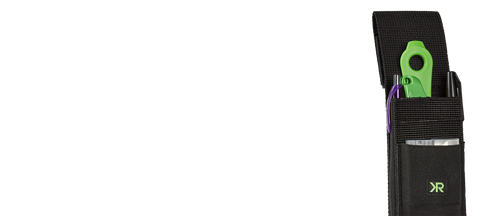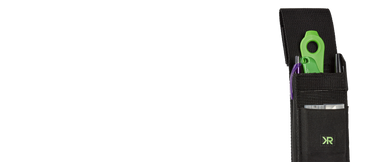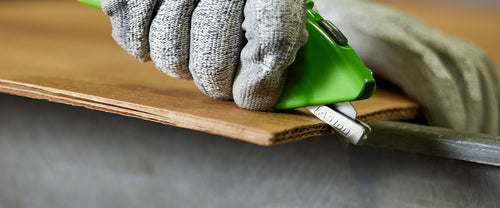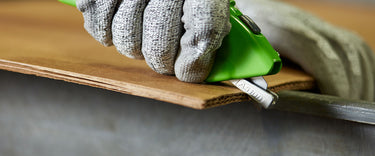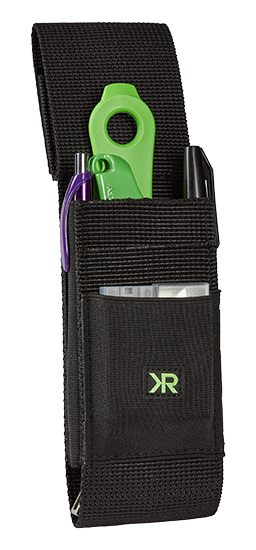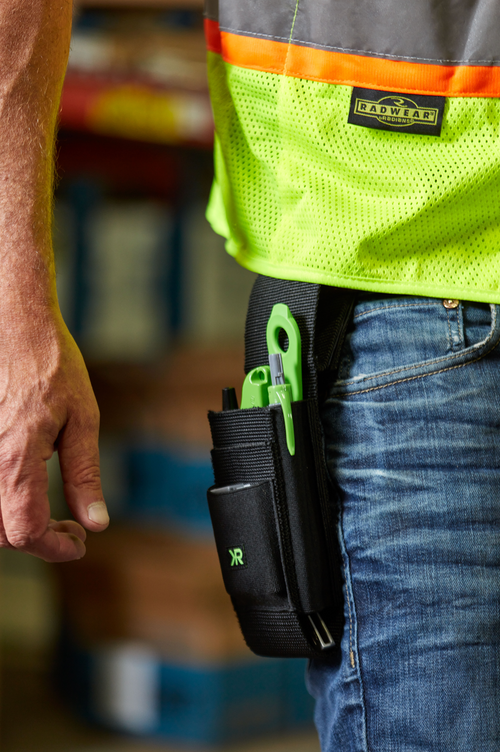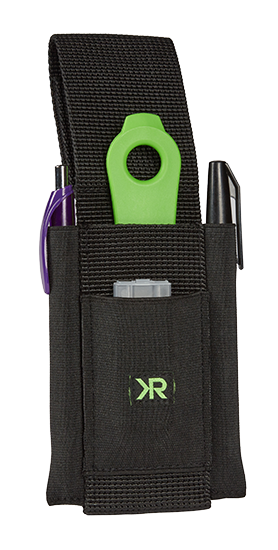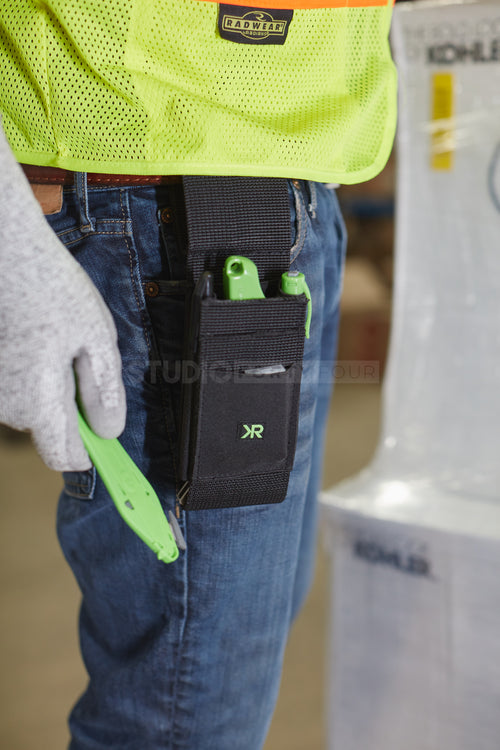AP100 / AP50 Safety Pouches
It is always best to use the safest knife possible when cutting anything, including corrugated. Accordingly, the CB100 is an excellent choice when cutting any part of a single wall corrugated box. When cutting double wall, it also excels at cutting off flaps and easily cuts product windows in the sides of a box. Triple wall corrugated requires a heavier duty knife with a longer blade extension and is where the AS100 excels. Not only can it be used to cut the flaps off, and it also easily handles cutting picking windows in the sides of these heavy duty boxes.
AP100
Safety Pouch
Product Specifications
Volume
37.5 cu. mm
Weight
0.2 lbs
Dimensions
250 mm x 70 mm x 40 mm
Materials
Nylon
AP50
Safety Pouch
Product Specifications
Volume
37.5 cu. mm
Weight
0.2 lbs
Dimensions
250 mm x 70 mm x 40 mm
Materials
Nylon
Frequently Asked AP100 / AP50 Questions
Why use a safety holster?
To allow for convenient access to safety tools on the job and easy availability to replacement blades. Putting a knife of any type in a pocket, even a safety knife is dangerous.
What is a safety knife?
A safety knife is a type of knife that has special features such as protective guards, auto-retractable blades and blunt tips These tools are used to prevent lacerations and repetitive motion injuries.
Why are safety knives important?
Safety knives are important because they can help you avoid injury and make your work easier. Safety knives are designed to protect both the user and others around them from injury. If you have a regular knife instead of a safety knife, there's a chance that someone could get hurt by accident if their hand slips while they're using it.
Why is it important to combine training with your safety knife purchase?
The importance of combining training with your safety knife purchase is that it helps you learn how to use your new tool in a safe and effective manner. When your employees are trained on how to use their new safety equipment, they will be able to perform their jobs safely and confidently.
How do safety knives protect people?
Safety knives protect people by making sure they don't cut themselves by engineering out the hazards. The sharp edge of a regular knife can easily cause serious lacerations. Safety knives are designed to prevent this type of accident.
How do I evaluate which safety knife is most effective for my organization?
The best way to evaluate which safety knives are best for your cutting tasks is by conducting a free safety knife evaluation and discussing your specific situation with a safety cutting professional.
What are common injuries caused by unsafe knives?
The two most common injuries caused by unsafe knives in the workplace and in factories are lacerations and repetitive motion injuries.
Lacerations are the most common injury caused by unsafe knives in the workplace. These occur when a person's body comes into contact with a blade that is being used.
Repetitive motion injuries are also common with poorly engineered knives in the workplace. These occur when someone uses a knife repetitively for long periods of time. This can lead to carpal tunnel syndrome, tendonitis, or other musculoskeletal issues.
